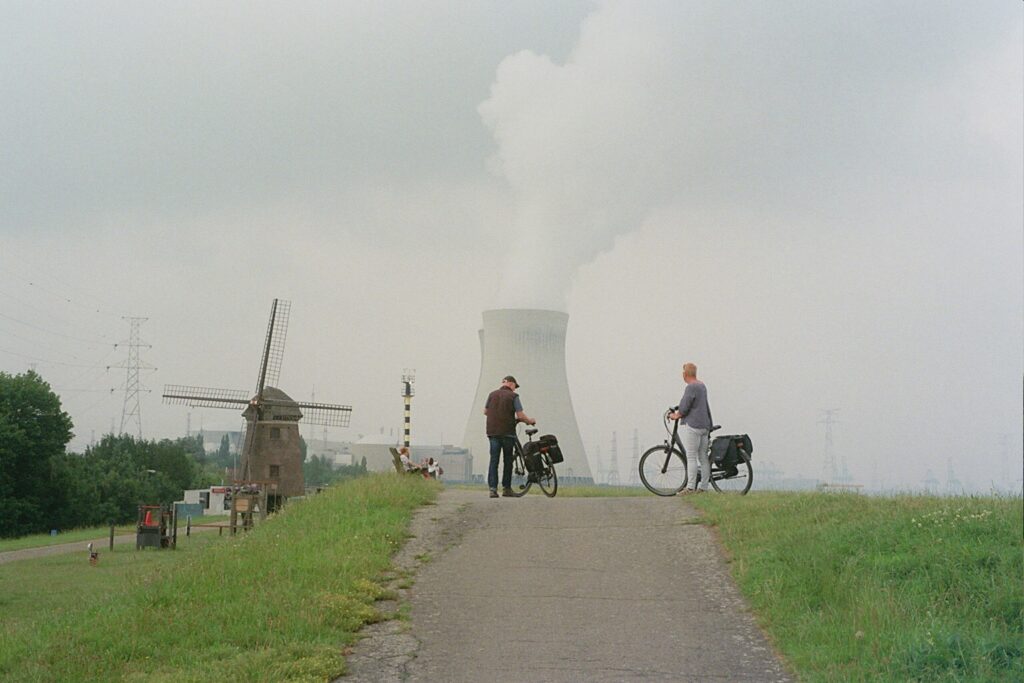Belgium's Federal Government and energy company Engie have reached an agreement on the extension of the Doel 4 and Tihange 3 nuclear power plants, announced Prime Minister Alexander De Croo during a press conference on Monday evening.
The agreement means that both nuclear reactors will remain open for another ten years, and both parties will do their utmost to restart Doel 4 and Tihange 3 on 1 November 2026. The agreement also contains a formula for calculating the cost of processing nuclear waste.
"We made an important decision today," De Croo said. "In short: works can start tomorrow for the extension of the two youngest nuclear power plants. Secondly, we are taking our energy fate back into our own hands."
At the end of March, the De Croo government decided to keep the two youngest nuclear power plants open for ten years longer than provided for in the Nuclear Exit Act (2003). The nuclear power plants must ensure the power supply now that Russia has gradually turned off the gas valve and multiple French nuclear power plants are experiencing major technical problems.
'Works can start tomorrow'
In the summer of 2022, an agreement in principle had already been concluded with Engie on the lifespan extension. That principle agreement had to be converted into a formal deal about the future operation of the nuclear power plants and the handling of nuclear waste.
"Tomorrow, Engie can start preparatory works to ensure that the two nuclear power plants are ready to restart by the winter of 2026," De Croo said. "This is not about the proverbial spade going into the ground, but the start of a number of studies. To begin with, an environmental impact report will be made. Studies will also be started on safety. These are the elements that will be crucial to extend the plants for the winter of 2026."
"What we have decided here is about a cornerstone of our supply. We will do everything we can to ensure that the extension is completed as quickly as possible," said De Croo. "Does that mean that everything has been decided today? No, absolutely not. But that was not the intention either."
For the time being, no maximum invoice for nuclear waste has been determined. That has yet to happen, but an agreement on the formula that will be used to make the calculation has been agreed on. "In the past, nothing was ever recorded about this, which now makes it even more difficult to do so. We are going to work on that now, but the most important thing is that the preparatory works can start tomorrow."
Related News
- Wind and sun accounted for almost 20% of the electricity mix in 2022
- Five ‘unforeseen events’ occurred at Belgian nuclear sites this year
- Flemish Minister explores talks with Netherlands on constructing nuclear power plants
Currently, Belgium is already in a situation where we help other countries, De Croo said. Belgium already exports electricity, among other things, and ensures that there are no shortages in Germany, for example. Additionally, a joint structure is being set up to manage the two reactors: the Belgian State and Engie will each become 50% shareholders.
For Federal Energy Minister Tinne Van der Straeten, this agreement goes "much further than merely extending the lifespan of two reactors," as it is "also about the nuclear waste, establishing a structure in which we both participate and taking control of our energy."
Like De Croo, she acknowledged that there is still a lot of work to be done. "We are absolutely not finished today, but all intermediate steps are important. This is very important to be able to realise our common goal for the winter of 2026.”
Both of them stressed that an important hurdle has now been taken, namely who is responsible for what. "That has never been defined before in our country," De Croo said. "Now that this is happening, it will be possible for the administrations to determine what the processing of the nuclear waste will cost."

